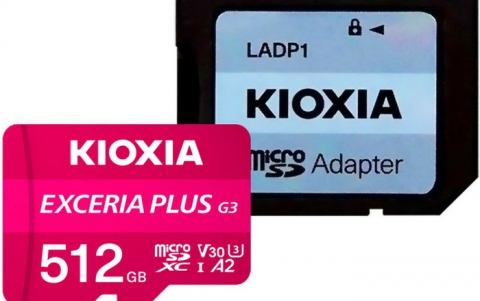Intel D 820
10. Encoding
Benchmarks are good for reference and comparison reasons but what about real life performance? For this reason, we carried out some simple tests, using popular utilities that most users run every day.
dBPower Tests
In the following graph, you can see how the three CPUs performed while encoding the same audio file into different formats. For this process, we used a whole music CD with a size of 750MB. We ripped the AudioCD using EAC and then with dBPower, encoded from one format to another. The times needed for each task are given below ( the lower the better off course :-).
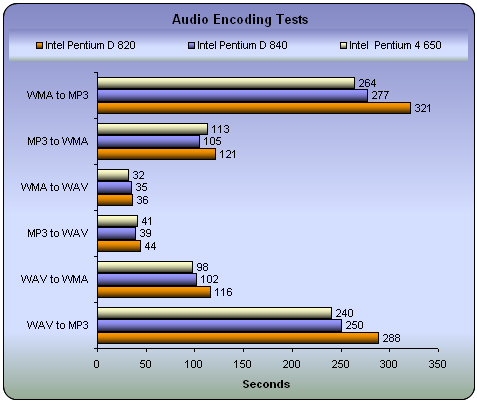
Audio encoding with the D 820 is not as good as expected. In all tests, the reported times were high. The P4 650 on the other hand was much faster in this task. The major differences occurred when converting WMA to MP3 and WAV to MP3, where the difference was almost a minute.
The settings for dBPower were the same for all CPUs. Analytically:


DVD Shrink Tests
Compressing a movie from DVD9 to DVD5 is a very common task. For this reason, we ripped an original movie (which we own off course :-), using DVD Decrypter. Then, with DVD Shrink, we compressed it in order to fit on a DVD5 disc. The size of the original movie was 6.85GB and we compressed it to 4.463GB. Below you can see how many frames per second each CPU processed and the total time needed for the encoding.

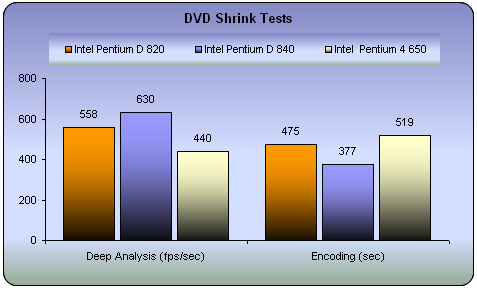
The D 820 handled more frames per second than the P4 650 during Deep Analysis, but required 50 seconds more during the encoding phase.
DivX Tests
Another very common task is to convert a movie into the DivX format. For this, we used a .vob file sized 202MB which was converted to .avi with FlaskMPEG. The settings are listed below:


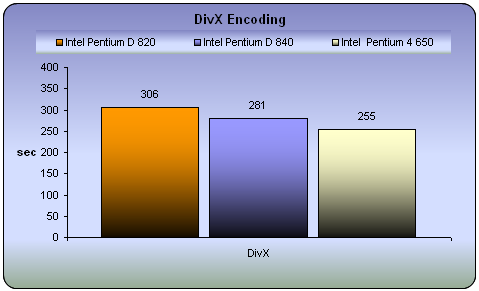
In DivX encoding, the P4 650 proved faster than the D820.
WinRAR Tests
Using a folder with 101MB of various data, we checked how long each of the CPUs needed to compress and extract the entire folder.
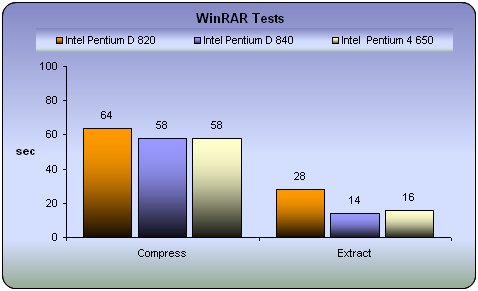
Much longer times required by the D 820 in comparison to the P4 650, which had similar performance with the D 840.









